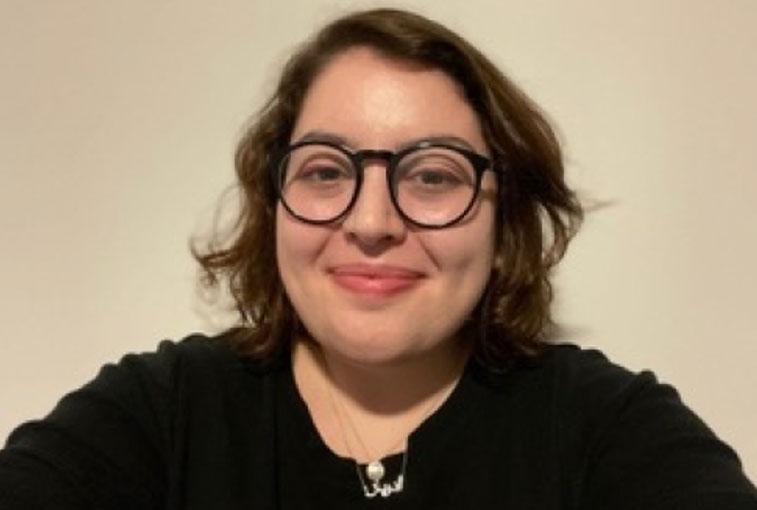Rising Scholars Postdoctoral Fellows Program
Cohort 4
Yunina Barbour-Payne
knh3ej@virginia.edu
Department of Drama

Yunina Barbour-Payne is a multidisciplinary scholar/artist and Rising Scholar Postdoctoral Fellow in the Department of Drama. Her interdisciplinary work encompasses Africana, Appalachian, and Performance studies. Her research and creative practice focus on Black women’s performance activism, with a particular emphasis on artists connected to the Appalachian region.
Initially trained as an actor, Barbour-Payne is also a National Endowment for the Humanities scholar in Shakespeare and performance. Barbour-Payne earned her Ph.D. in Performance as Public Practice from the University of Texas at Austin, an M.A. in Performance Studies from Texas A&M University, and a B.A. in Integrated Studies from Northern Kentucky University.
Her scholarship is featured in Appalachia Revisited: New Perspectives on Place, Tradition, and Progress (University of Kentucky Press, 2016). She is the founder of The Affrilachian Memory Plays (AMP), a performative inquiry that highlights the experiences of people of color in Appalachia. Her research and teaching have been supported by the Donald D. Harrington Fellowship Society and showcased at esteemed venues, including the George Washington Carver Museum and Cultural Center and the National Underground Railroad Freedom Center.
Jade Conlee
jade.conlee@virginia.edu
Department of Music

Jade Conlee is a Mellon Race, Place, and Equity Postdoctoral Research Associate in the Music Department at the University of Virginia. She specializes in antiracist and anticolonial approaches to the history of American popular music, jazz, and music theory. Her research works broadly across the music disciplines and engages with Black studies, Indigenous studies, and the environmental humanities to ask how music and sound mediate our relationships to race, place, and the natural world. Her current book project studies how background music facilitated the expansion of American empire in the Pacific from the 1950s to present. Drawing on archival and ethnographic methods, it explores how background musicians and listeners have used music to depict the feel of tropical space, and in doing so, forged and contested the spatial imaginaries of U.S. colonialism. Jade is also co-editor of the edited volume Insurgent Music Theory: Terminology and Critical Methods for Antiracist Music Studies, under contract with the University of Michigan Press’ “Music and Social Justice” series. Drawing on critiques of Enlightenment humanism from Black and Indigenous studies, the book reimagines music theory’s epistemic foundations by redefining and expanding the core terminology music scholars use to describe what music is and how it works. Trained as a pianist specializing in contemporary classical music, Conlee received her Ph.D. and M.A. in Music Studies from Yale University and holds a M.M. in Piano Performance from the University at Buffalo and a B.M. in Piano Performance from New York University. Her research has been supported by the Fulbright Program and Yale University’s Center for Race, Indigeneity, and Transnational Migration.
Isabel Gonzalez
xtb2pr@virginia.edu
Department of Women, Gender, and Sexuality

Isabel Felix Gonzales is a Rising Scholars Postdoctoral Fellow in the Department of Women, Gender, and Sexuality at the University of Virginia. Their work moves across political theory, ethnic studies, gender and sexuality studies, and media studies to examine the crisis and crystallization of identity’s meaning, and those queer, trans, and nonbinary people of color who, through modes of illegibility, unruliness, and kin-making, refuse its capture. Isabel received a PhD in political science at the University of California, Irvine.
Adrienne Resha
amr9hk@virginia.edu
Department of Middle Eastern and South Asian Languages and Cultures

Adrienne Resha is a Rising Scholar Postdoctoral Fellow in the Department of Middle Eastern and South Asian Languages and Cultures. She holds a B.A. in International Affairs and Anthropology from Florida State University, an M.A. in Middle Eastern and South Asian Studies from the University of Virginia, and a Ph.D. in American Studies from William & Mary. Her interdisciplinary research focuses on Middle Eastern, North African, and South Asian representation and racialization in American popular culture, especially in the superhero genre. Her first book project, Arab and Muslim Marvels, combines cultural history of the genre and critical analysis of visual media (comic books, television, and film) featuring post-9/11 and post-Arab Spring superheroes.
Aaron J. Stone
zgn7wa@virginia.edu
Department of Women, Gender, and Sexuality

Aaron J. Stone (they/them) is a Rising Scholar Postdoctoral Fellow and Research Associate in the Department of Women, Gender & Sexuality at the University of Virginia. Their primary research interests span queer and trans studies, multiethnic U.S. literature (C20–present), modernist studies, and narrative theory. Stone’s book project, Desires for Form: Modernist Narrative and the Shape of Queer Life, explores the social crisis of form that Black and white queer communities faced in early twentieth-century America and the narrative strategies queer subjects employ in imagining what shapes their lives might take. The project makes two counterintuitive claims: first, that experimental queer texts often represent desires for traditional ways of life; and second, that ostensibly “conventional” narratives—a label most often applied to nonwhite modernists—have been equally essential to the project of queer worldmaking. These claims are explored through new analyses of narratives by At stake here is a queer and trans theory that accounts for both antinormativity and the longing for models that facilitate reimagined, nonnormative ways of being.
Stone’s published and forthcoming work includes articles on Nella Larsen and queer experimentalism (Modernism/modernity, forthcoming) and Black American novelists and/as American sexologists (GLQ, 2023), as well as book chapters on drag and genderqueer life writing (A History of American Gay Autobiography, Cambridge University Press, forthcoming) and the resurgence of punk and alternative aesthetics within drag performance (The Cultural Impact of RuPaul’s Drag Race, Intellect Books, 2021)